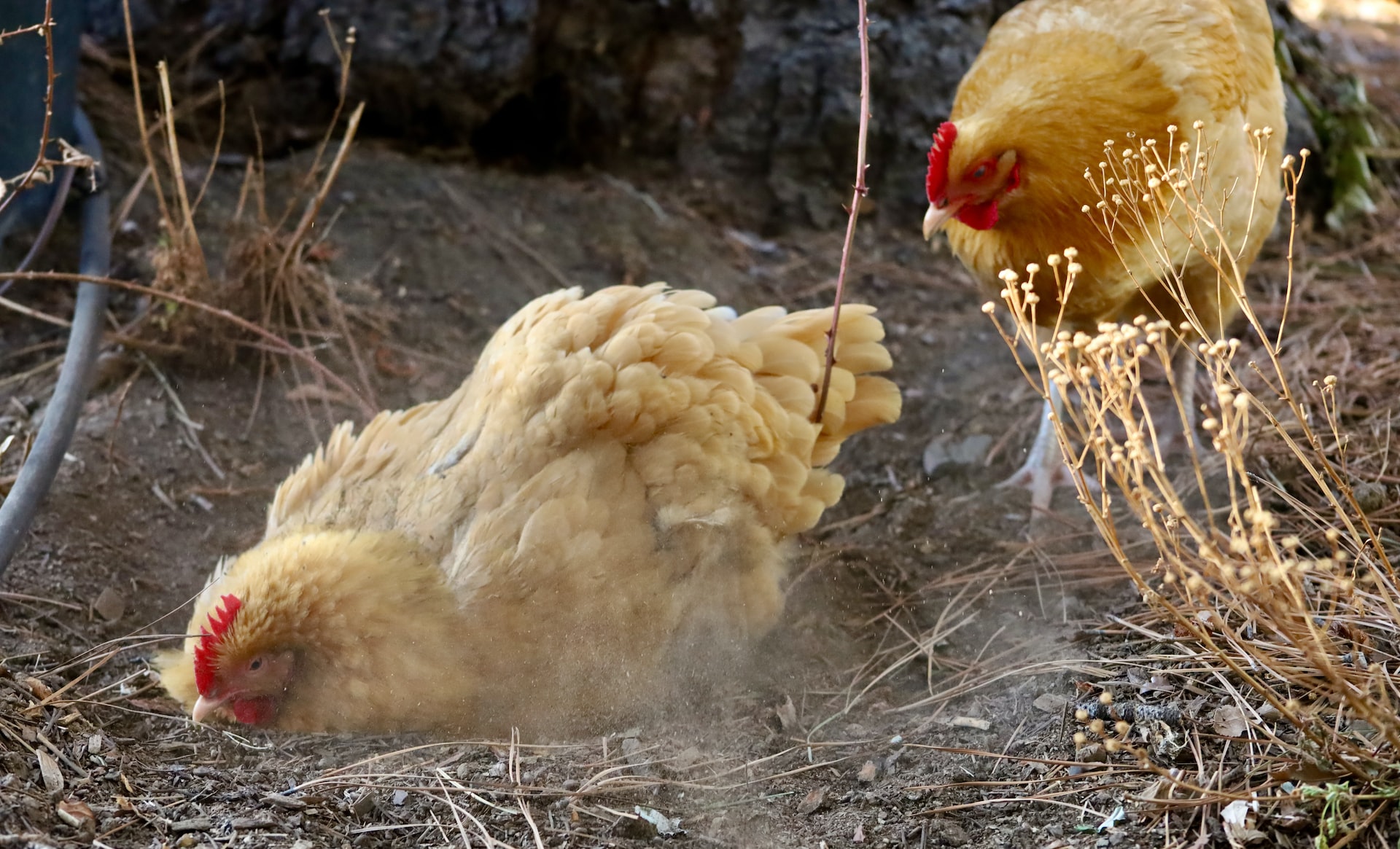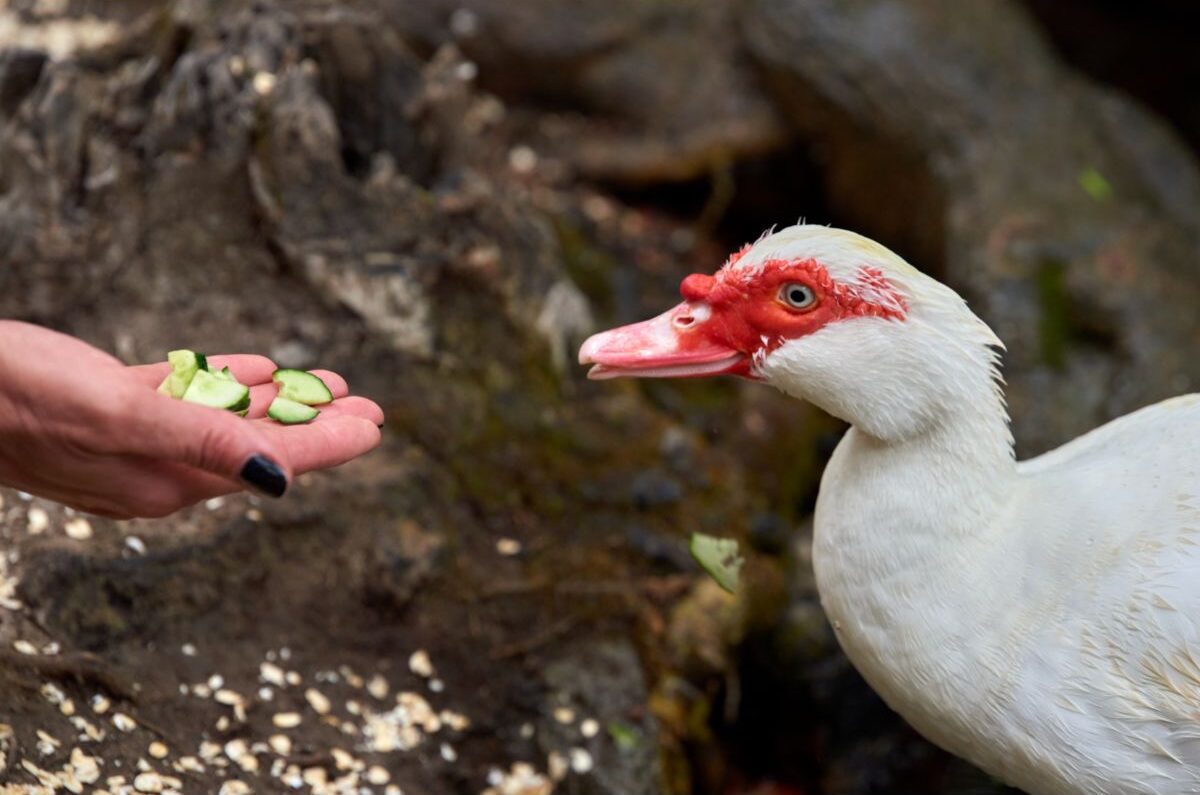Keeping chickens looks easy enough, but like any animal, they can get sick. The last thing I wanted to see was one of my chickens looking less than healthy. I rushed it to the vet, where I was told it was a good thing I brought her in as she was egg-bound. It bothered me that I had not caught it sooner and made me wonder how to know if chickens are sick and what are the signs of stress and sickness?
You know your chicken is sick or stressed if you see chickens hiding, losing feathers when not molting, bleak colorless comb or wattles, little to no appetite, unkempt feathers, discharge from the nose or eyes, or abnormal droppings. Healthy chickens are active, hungry, and have plump red wattles.
I was determined to learn more about the signs of sickness or stress in chickens, so I visited a chicken farmer with years of experience. The farmer gave me a lot of helpful advice, and I learned a lot about chickens, their normal healthy behavior, and what to look for if I suspect one or more are ill. I decided to share the information I gathered as I know it can help others.
Contents
How To Know If Chickens Are Sick Or Stressed?
Knowing when something is wrong with your chickens is important, as it can affect them and your family. For most people, keeping chickens is either a hobby or a business; the more you know about them, the easier it is to keep them healthy and happy.
Before we can look at the signs of sickness, we must first know what a healthy chicken looks like. Signs of a healthy chicken:
- Healthy chickens have a waxy, plump, and bright-colored comb and wattles,
- Healthy chickens are active and busy most of the day; they are eager to leave the coop and start their day,
- Healthy chickens have healthy appetites and don’t hesitate to eat their fill,
- Healthy chickens are groomed, and their feathers are glossy and look healthy,
- Healthy chickens have bright and clear eyes,
- Healthy chickens have healthy droppings that are capped, brown or brown with a green tinge and have white urine salts or slightly runny (not too much),
- Healthy chickens are always communicating with each other,
- Heatly chickens (the young ladies) lay one egg per day on average,
Signs That Indicate A Chicken Might Be Sick
Now that we have established what healthy chickens must look like, we can detail how to tell if they are sick. There are many types of chicken diseases, bacteria, viruses, parasites, and illnesses. While some might show little to no symptoms and can be treated, others, such as Avian Flu, can decimate a flock in days. Here are the signs of sickness in chickens:
Appearance Of A Sick Chicken
When chickens are sick, there are a few signs involving their appearance that will indicate if they might be sick. Some of the signs include;
- A bleak or light-colored comb and wattles; their comb and wattles will also look dry and not as plump,
- Chickens who are sick and don’t feel well will hide in the coop when you open it up and won’t eagerly come out, preferring to stay in their nest,
- Most chickens won’t have much of an appetite when they are sick, so look for those that are not eating,
- Depending on the sickness, a sick chicken might have a discharge coming out of its nose and eyes,
- A sick chicken can have ruffled, dirty feathers or might lose its feathers. Remember, chickens go through a yearly molting phase, but if there are more signs, it’s not molting.
- Sick might chickens will sit lower on the ground with their wings back (like egg-bound chickens),
- Sick chickens have very smelly runny, and discolored droppings (remember that the droppings will have a red tint if you have given the chickens beet)
- If your chickens are sick, they will stop laying eggs regularly,
- Sick chickens will lie down most of the time and not communicate with the rest of the flock.
If you see any signs or symptoms mentioned in the section above, you should get the affected chicken/chickens to a vet immediately for proper diagnosis and treatment.
Signs Of Stress In Chickens
The signs of stress can be mistaken for sickness, but there are ways to tell if your chicken is sick or stressed and how to get it back to its normal relaxed and happy state. Stress is a silent killer because stressed chickens can become sick; if the stress and sickness persist, it can lead to death if you don’t recognize and treat it in time.
It might sound like a stressful chicken is absurd, but when chickens are stressed, there is a change in their hormones, causes chemical changes, and suppresses the normal immune response of chickens. So ensuring to keep an eye out for these symptoms will help keep the chickens happy.
- If you see your chickens constantly preening even if they have no parasites, it responds to stress.
- Chickens will stop laying eggs for a period. It can happen when you have moved your chickens or introduced a new flock member. They only need a few days to relax.
- A stressed chicken will become more aggressive and pace the ground restlessly and aimlessly.
- They will stop eating and start to lose weight.
- Their immune system will become compromised, affecting their health; it makes them more susceptible to illness. If you see some chickens become sick often, it can be stressful.
- If a predator has attempted to get into the coop or has succeeded, your chickens will get stressed, and if you don’t improve safety measures, it may cause them to become sick.
Conclusion
It’s vital to know some of the signs and symptoms of stress and illness in chickens to catch and treat them early and appropriately. Chickens can get sick from several different illnesses and stress-related issues, so you must keep that in mind and observe your flock daily.
If you find your chickens restless, losing their appetite, and losing feathers, and if they stop laying eggs (to name a few), you might need to take your chicken to the nearest vet so they can find out what is causing the illness or stress and treat it before you lose your chicken or the entire flock.




